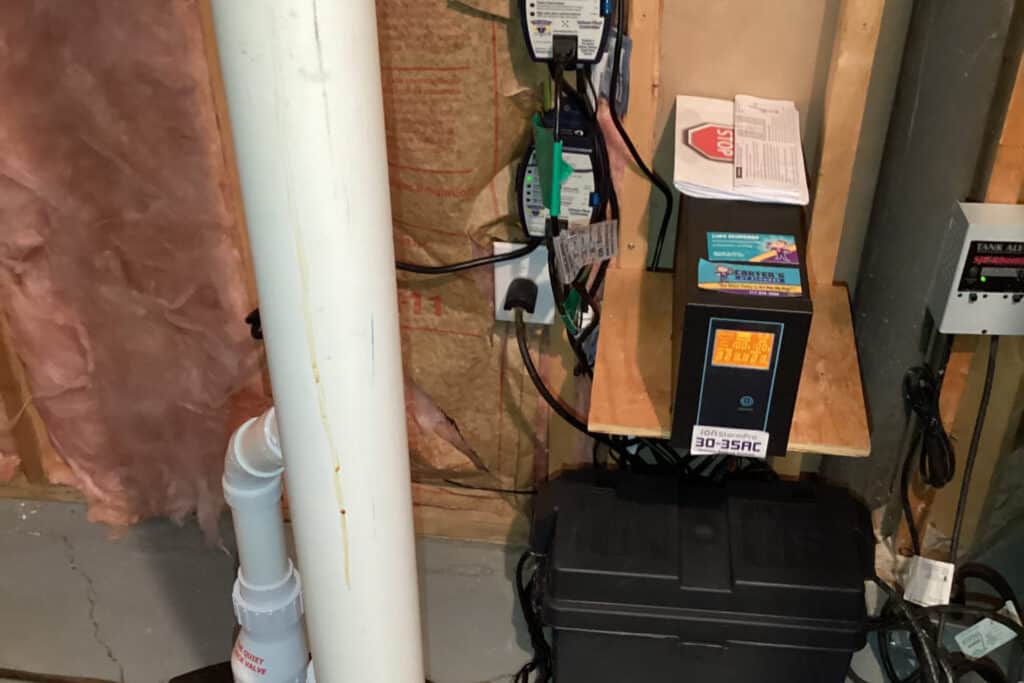Table of Contents
2024 Update: While there are a number of factors that can affect the cost of installing a new sump pump, the average price point for Indianapolis homeowners will run somewhere between $800 and $1500. Your professional plumber can give you a more precise estimate.
For homeowners in the Indianapolis community, having a sump pump is essential. There’s no better precaution against basement flooding and extensive water damage, not just from seasonal rains but also from potential plumbing issues.
Whether you’re looking to install your very first sump pump or you need to have an older unit replaced, it’s only natural to wonder about the cost. Of course, there are a number of factors that can affect the total cost of sump pump replacement, ranging from the type of sump pump you install to its location within your home.
The best way to learn more about different types of sump pump installation, and to receive a more direct and specific cost estimate, is to contact a professional plumbing company. Consider Carter’s My Plumber, the most trusted name for sump pump installation in Indianapolis.

What’s the Typical Cost of Sump Pump Installation in Indianapolis?
Again, different homeowners may experience different sump pump price points, simply depending on the scope of work required. As a rule of thumb, we usually tell our clients that the total expense for sump pump installation runs from $800 to $1500. Again, when you call our team and arrange for a consultation, we’ll be happy to provide a more specific estimate that aligns with your sump pump needs and goals.
Which Factors Affect Sump Pump Installation Cost?
When estimating the total cost of installing a new sump pump, there are a number of factors worth considering.
The Type of Sump Pump
There are various types of sump pumps on the market today, with the two most common being pedestal pumps and submersible sump pumps. Submersible pumps will usually come with a higher price tag than pedestal pumps.
Pump Capacity and Power
The capacity and power of the sump pump can affect the cost. Higher capacity and more powerful pumps may cost more, but they can also be more effective at preventing basement flooding, damage to your household foundations, etc.
Brand
As with any other consumer product, the brand you choose can have a tremendous bearing on quality as well as overall price point. Higher-quality pumps from better-known, more reputable brands typically come with a higher price tag.
Household Location
The difficulty of the installation location can influence your labor costs. For example, if your plumber has to dig a deep hole or work in a tight, confined, inaccessible space, you can expect both the project timeline and overall cost to balloon.
Plumbing Infrastructure
If there is an existing infrastructure in place, such as a sump pit or a pre-existing drainage system, the installation may be a bit easier and less time-consuming. For this reason, replacing a sump pump is usually less expensive than installing one from scratch.
Extra Features
Some sump pumps come with bells and whistles built in, such as battery backup systems or water level alarms. These features definitely contribute to the total cost, but may also enhance the usefulness of your pump.
Permit and Code Requirements
Depending on local regulations, obtaining permits and ensuring compliance with building codes may add to the total cost. Your plumber will be able to tell you more about any local fees or permitting requirements built into your sump pump installation estimate.
Warranty and Maintenance
Buying a sump pump that has an extensive warranty or a lengthy maintenance plan built-in can cause the cost to increase, though of course, it also adds to your long-term value. It may also reduce ongoing expenses associated with your sump pump, making warranties worth considering.
Accessories and Materials
Some installations may require additional accessories, such as discharge pipes, check valves, and fittings. These will cause the average cost of installation or replacement to go up a little bit.
Frequently Asked Questions About Sump Pump Costs
Is installing a sump pump expensive?
They are not very expensive but back up systems to a sump pump can run a lot more. However, these backup units also save your basement floor from extensive flooding, should heavy rains be accompanied by a power outage. As such, they are often well worth the money you spend on them.
Do plumbers install sump pumps?
Yes, professional plumbing companies are actually the best sources for sump pump installation. Not only can they advise you on the type of pump you might need, but they also have the expertise to ensure the right hook-ups for your drainage pipes, etc. Calling a plumbing service is one of the best ways to decrease your risk of flooding via sump pump installation.
How much is a sump pump for a basement?
The cost of installing a new basement sump pump can be anywhere from $800 to $1600, depending on a wide range of factors. These factors include the type of pump, the existence of a sump basin or other infrastructure, the brand/quality level, warranties, and additional costs associated with materials and accessories. When you call your plumber, they can provide you with a more specific estimate.
How many hours does it take to install a sump pump?
A number of factors can affect the sump pump installation time, ranging from the type of pump to the type of floor to the location in your home. For most projects, the total turnaround time is an hour and a half.
Do sump pumps use a lot of electricity?
The electrical input required for a sump pump can vary depending on multiple factors, including the type of pump, its power and capacity rating, and how frequently it operates.
What are the disadvantages of having a sump pump?
Sump pumps can be incredibly valuable for addressing potential moisture problems in your basement, and for ensuring your home remains free of flooding even during intense storms. Some potential disadvantages of a sump pump include the reliance on electricity, the potential for noise, and the middling lifespans for lower-quality units. It should also be noted that there is not much you can do in terms of sump pump maintenance; usually, when a unit fails, it just needs to be replaced.



